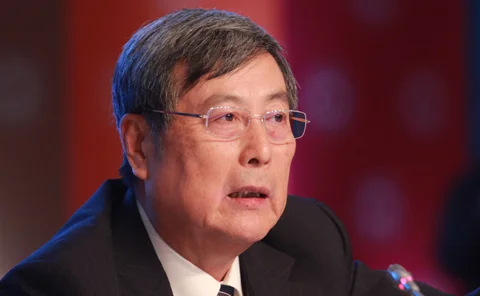Feature
Case study: The China-Pakistan Economic Corridor
Countries such as Pakistan stand to benefit enormously from Chinese infrastructure investment as part of the One Belt, One Road policy, writes Habib Bank president and CEO Nauman K Dar
China’s role in globalisation post-financial crisis
Huang Mengfu, honorary chairman of the All-China Federation of Industry and Commerce, examines what China’s role will be in an increasingly interconnected world
The role of infrastructure in spurring Chinese growth
Wendy Dobson, IFF Academic Committee member and former Canadian associate deputy minister of finance, highlights three lessons that can be applied to the Silk Road initiative
The renminbi and the international monetary system
Zhou Yueqiu, director of the Urban Finance Research Institute of the Industrial and Commercial Bank of China, offers some perspectives on the future role for the renminbi post-SDR inclusion
Co-ordinating China’s domestic and international efforts
As China becomes an increasingly significant player on the international stage it can no longer be insular in its policies, writes deputy governor of the People's Bank of China, Yi Gang
The growing role of China in an interconnected world
With global economic health ever more reliant on Chinese growth, Wang Yan, deputy director of the IFF Institute, looks at how structural reforms can help China take a leading role in the future
Reform facilitated by the renminbi’s inclusion in the SDR basket
Ba Shusong, IFF Academic Committee member and chief China economist of The Stock Exchange of Hong Kong examines the significance of the renminbi’s SDR inclusion
Searching for excellence in central bank communication
First-class performance of modern central banks requires first-class communication
Divergent monetary policies are top concern for reserve managers in 2016
Reserve managers view divergent monetary policies among the world’s top central banks as the most pressing challenge they face in 2016; asset and currency diversification continues
Tiberius’s experiences with zero interest rates in 33 AD
Can the European Central Bank learn lessons from the use of zero interest rates by the Romans in 33 AD as they grappled with their own fiscal and monetary crisis?
Threats and opportunities for money and payments in the digital age
Supervisors will need to adapt their frameworks to protect trust in new protocols associated with cryptocurrencies and distributed ledgers, not merely guard against new risks
Secrecy over MNB funds sparks constitutional dispute
Unanswered questions over the use of Hungarian central bank funds have led to a series of legal and constitutional battles
To play the counterfeiter
The Reproduction Research Centre in Copenhagen helps central banks to counterfeit colour-shifting technology and machine-readable codes on banknotes in a bid to reduce fraud
The People’s Bank of China’s internet finance dilemma
China’s central bank faces a challenge encouraging the development of market-based internet financial services while regulating a business where a $7.6 billion Ponzi scheme recently blew up
Towards a more stable monetary world order
A global network of independent central banks could act as a manager of expectations for asset and foreign exchange prices to reduce the burden of future crises, argues David Harrison
Central banks struggle to manage price expectations
Large central banks have responded aggressively to falling levels of inflation and inflation expectations, but with divided and limited success. What can policy-makers do to restore confidence?
Central Bank of the Year: Central Bank of Ireland
Well-capitalised banks, new supervision measures and timely macro-prudential policy action to cool an overheated property sector have gone far to restoring the Central Bank of Ireland's credibility
Governor of the Year: Erdem Başçı
Erdem Başçı has guided the Turkish central bank through a turbulent period marked by policy spillovers from advanced economies, political interference at home and conflict in the Middle East
Reserve manager of the year: National Bank of Denmark
The National Bank of Denmark's new risk budget-based investment strategy stood up well to the unprecedented flows of funds into and out of the country in 2015.
Initiative of the year: Reserve Bank of New Zealand
The Reserve Bank of New Zealand’s enterprise risk management system offers a best-practice example of how to build a framework from the ground up, with a small team and limited resources
Consultancy and advisory services provider of the year: BlackRock Solutions
A key partner to major central banks engaging in complex asset purchases, asset quality reviews, resolution mechanisms and strategic asset allocations
Risk management services provider of the year: Wall Street Systems
A powerful real-time risk-calculation engine, consistent high-quality support and broad central-banking experience make this treasury management offering the best in class
Lifetime achievement award: Zeti Akhtar Aziz
Zeti has played a crucial role in efforts to modernise Malaysia’s financial system, and has worked tirelessly to promote Islamic finance, financial inclusion and South-east Asian integration.
Economics in central banking: John Taylor
The Stanford University professor wins this year's economics award for work in designing a global 'rules of the game', at a time when many central banks are demanding deeper co-operation























